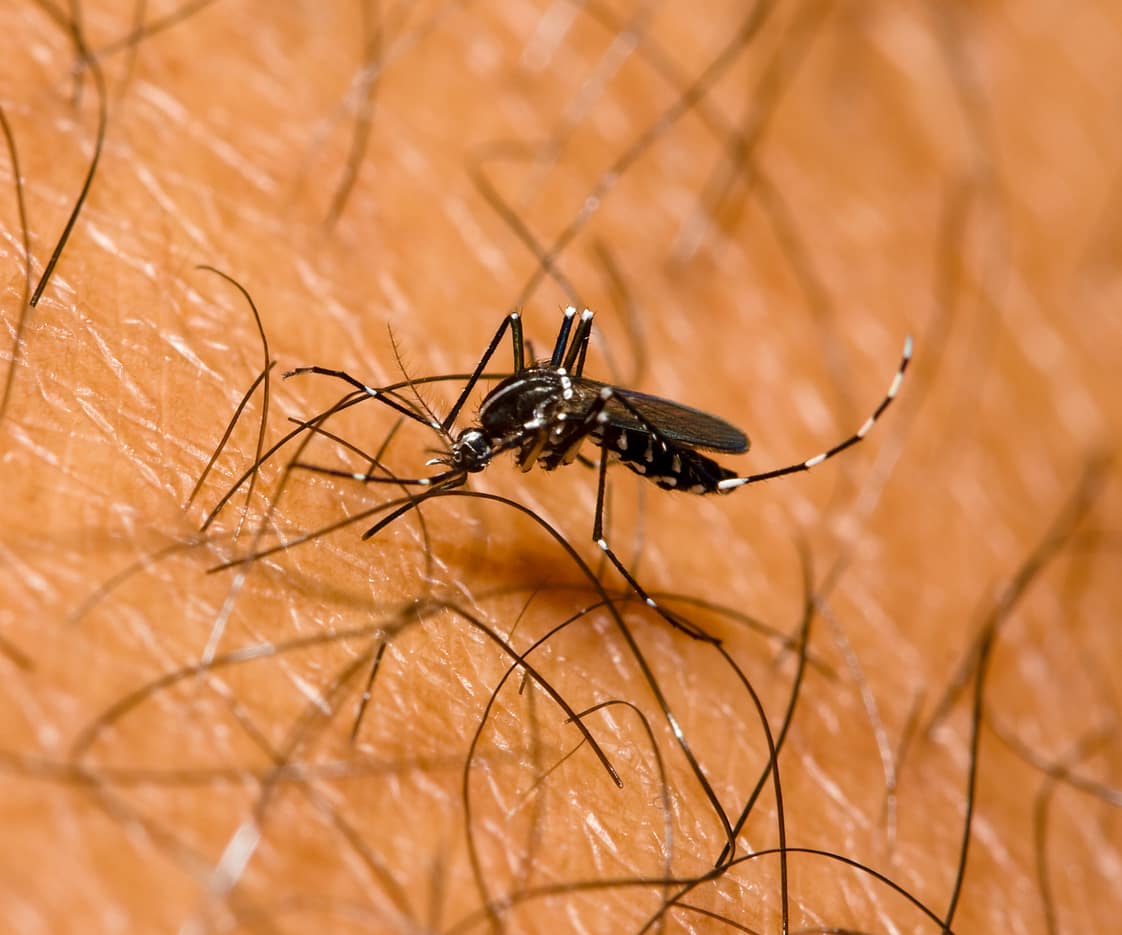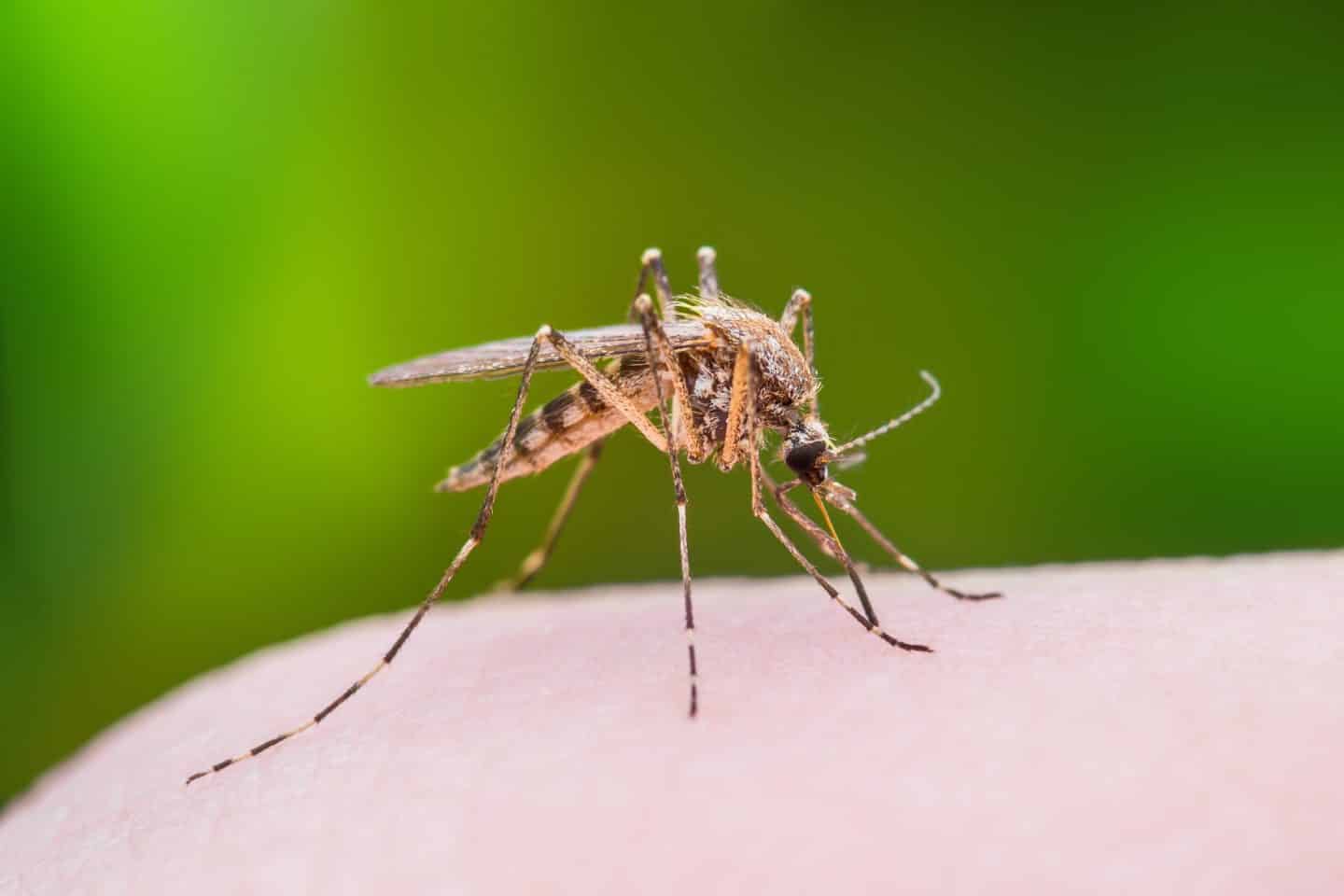Author: Kurt Treftz, Cascade Pest Control
As you enjoy a brisk, bug-free walk on a cool winter afternoon, you might begin to wonder “Where have all the mosquitoes gone?” Have they migrated? Or hibernated? And maybe more importantly, when will they be back?
Just what exactly happens to mosquitoes in the winter? Mosquitoes, like most insects, are cold-blooded creatures. Their inability to regulate their temperature means they are susceptible to seasonal changes. But that doesn’t mean they haven’t learned to adapt. Unfortunately, these pesky biters will be back again as the weather warms up.
What temperature is too cold for mosquitoes?

Since a mosquito’s temperature is the same as its surroundings, this insect functions best at about 80 degrees F. As the temperature reaches around 60 degrees, they become sluggish and lethargic. Once the temperature drops below 50, mosquitoes can’t function.
Tropical climates where the temperatures rarely drop that low will experience mosquito activity year-round. Temperate climates, with more extreme temperature ranges, have mosquitoes that have adapted to survive the winter months.
What do mosquitoes do in winter?
There are a few ways that different species of mosquitoes have to survive the winter.
- As eggs – Some types of mosquitoes have hardy winter eggs. The females lay their eggs in the fall as the temperature drops and then the species survives as embryos laid by the last generation of females. These eggs can be deposited on aquatic plants and submerged under ice. They will survive the harsh conditions to hatch in the spring and begin the process of maturing into a new generation of blood-suckers.
- As adult females – Other types of mosquitoes, survive the winter as adults. (But only as female adults since male mosquitoes never survive long after mating and likely don’t even make it to the fall.) In these species, females enter a state of diapause (similar to hibernation) where their processes slow down in order to survive the harsh conditions. They may find shelter in animal burrows, hollow logs, cracks & crevices, or even basements, garages, and other structures. These are the types of mosquitoes that might make an appearance on a warm winter day when they are confused into waking up.
- As larvae – A small number of mosquitoes will even survive the winter as larvae. These adolescent mosquitoes will bury themselves in mud in freshwater stumps. As the temperatures rise in the spring, they emerge ready to feed and complete their lifecycle into mature adults. Once full-grown, they become the annoying, biting creature we all love to hate.
How can you stop mosquitoes in the winter?
As a home or business owner, you can take advantage of this lull in mosquito activity to prepare. You can cut down on the number of mosquitoes that emerge in the spring/summer, by taking a few steps in the winter.
- Reduce moisture. Mosquitoes thrive in wet environments and it is often where they lay their eggs. Remove any standing water from around your home or business. (Even pet food and water bowls can be enticing for pests. So avoid leaving them out all the time.)
- Check for leaks and make repairs before the warm weather awakens the pests.
- Clean up organic matter. Don’t let piles of organic waste build up around your structure. Eliminate places for breeding or overwintering by discarding leaves, bushes, etc.

While we might wish these pesky critters went away for good, unfortunately, they are just biding their time, ready to emerge again as the weather warms. So, enjoy the respite while you can and get ahead of any infestations, if possible. Contact Cascade for professional help with any insect invasion at 888-989-8979.
